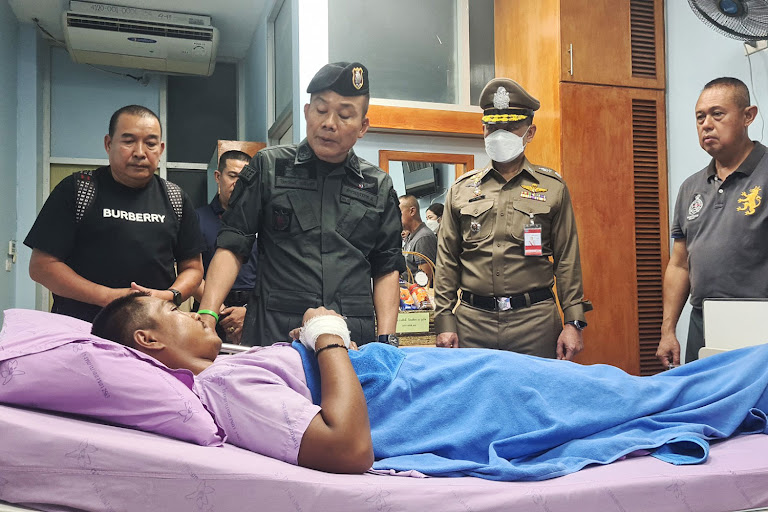Thailand: MP’s Son Assaults Officer, Claims Elite Privilege
Son of MP’s alleged assault on officer enforcing voting rules highlights deeper issues of privilege and accountability within Thailand’s political system.

The assault of a police officer at a polling station in Songkhla, Thailand, might seem like a localized incident, but it exposes fault lines running deep within the country’s political system: the perceived impunity of local elites, the pressures on law enforcement, and the fragility of democratic processes, even at the municipal level. According to this Bangkok Post report, the incident involved a member of the Songkhla Provincial Administration Organisation (PAO), Siridanai Plaiduang, the son of a Democrat Party MP, and six associates who allegedly attacked Pol Snr Sgt Maj Nisathit Kongthep after the officer enforced voting rules.
This isn’t just about a scuffle at a polling booth; it’s a stark reminder of how easily the threads of order can unravel when privilege and entitlement supersede the rule of law. The brazen act of photographing a ballot paper—a clear violation of electoral regulations—followed by the escalation into physical violence reveals a disturbing disregard for democratic norms. The officer’s question, “Do you know who I am?” encapsulates the power dynamics at play, where connections and social standing are seemingly believed to grant immunity from basic rules and regulations.
The incident raises several key questions about the broader implications for Thai politics and society:
- Accountability and Enforcement: Will the investigation and prosecution be truly impartial, given the political connections of the accused? The national police chief has promised immediate prosecution, but past cases suggest that such pronouncements don’t always translate into swift and just outcomes, especially when influential figures are involved.
- The Role of Local Power Structures: Provincial Administration Organisations wield significant influence at the local level. How are these organizations structured, and what oversight mechanisms exist to prevent abuse of power? Understanding the incentives and accountability frameworks within these bodies is crucial for addressing systemic issues.
- Erosion of Trust: When individuals perceive that the law applies differently to those with power and connections, it undermines public trust in institutions and the democratic process itself. Restoring that trust requires tangible actions to demonstrate that everyone is held accountable under the same rules.
- Impact on Future Elections: Will this incident deter other officials from enforcing voting regulations, or embolden those who seek to exploit loopholes in the system? Creating a culture of fear and intimidation at polling stations poses a direct threat to free and fair elections.
“The true measure of a democracy is not just whether elections are held, but whether the outcomes of those elections are respected, and whether the rules are applied equally to all, regardless of their social standing. This incident suggests that Thailand has work to do on all three fronts.”
The quick response of the police, with arrest warrants issued for Mr. Siridanai and his associates, is a positive first step. However, the real test will be whether the legal proceedings are transparent, thorough, and ultimately lead to a just outcome. This case serves as a critical juncture, a moment where Thailand can demonstrate its commitment to upholding the rule of law and protecting the integrity of its democratic institutions, or succumb to the pressures of privilege and impunity.









